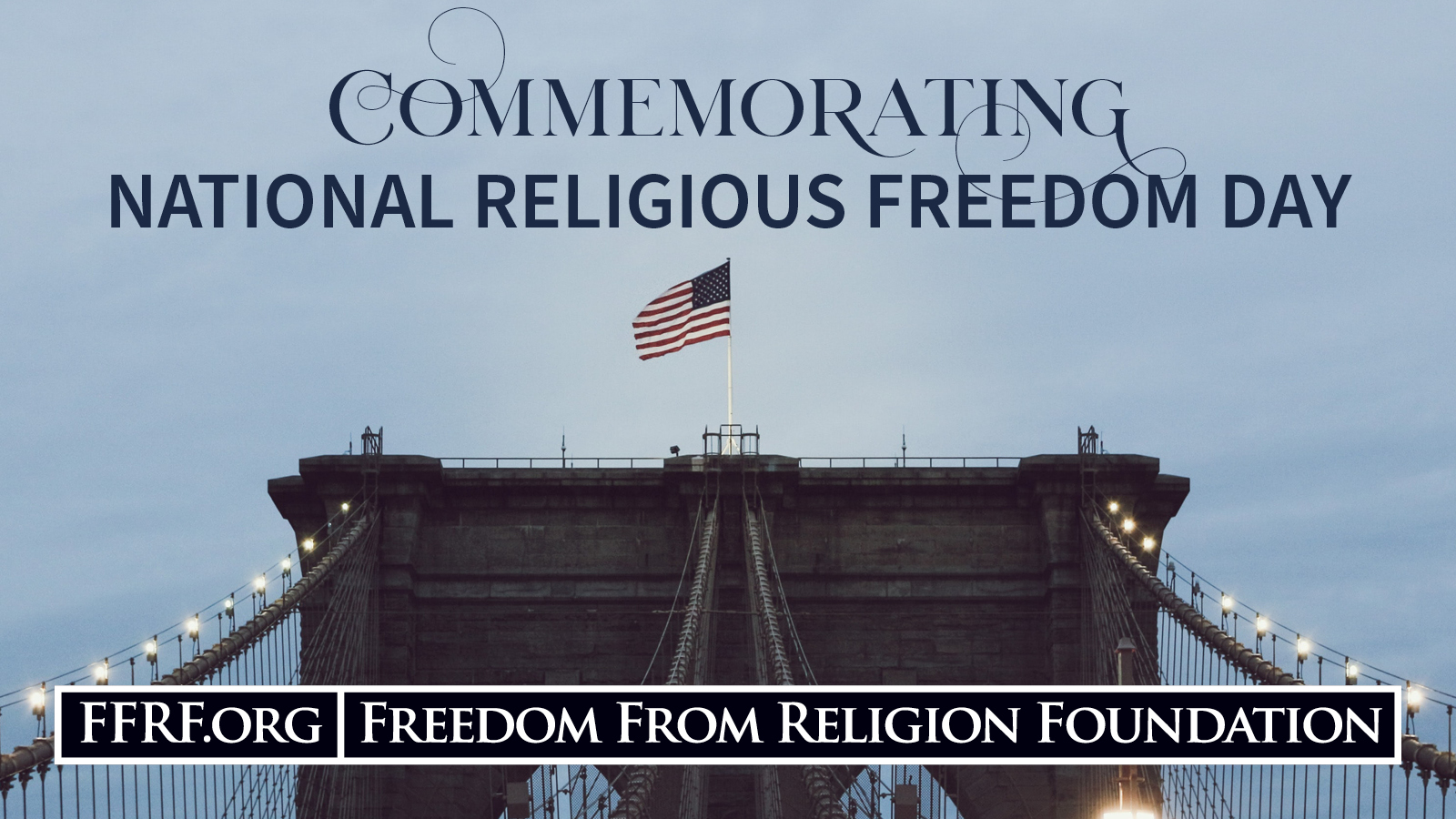
The National Religious Freedom Day, proclaimed on Jan. 16 annually by presidents since 1993, memorializes a constitutional principle that today is imperiled by our Supreme Court.
The landmark Virginia Statute for Religious Freedom, originally penned by Thomas Jefferson, was adopted by the Commonwealth of Virginia on Jan. 16, 1786.
In his history-making Statute for Religious Freedom, the deistic Jefferson includes a few references to “Almighty God,” but the purpose of the legislation was in fact to get God out of government.
The law itself reads: “[Be it enacted by the General Assembly] that no man shall be compelled to frequent or support any religious worship, place, or ministry whatsoever, nor shall be enforced, restrained, molested, or burthened in his body or goods, nor shall otherwise suffer, on account of his religious opinions or belief; but that all men shall be free to profess, and by argument to maintain, their opinions in matters of religion, and that the same shall in no wise diminish, enlarge, or affect their civil capacities.”
This basic, fundamental principle is under direct assault by Christian nationalist legal outfits and now by the Supreme Court itself. Many state constitutions mirror the language of the Statute for Religious Freedom, explicitly barring taxpayer support of religious worship, places or ministries. Yet the high court has started to invalidate state constitutional protections against forcing citizens to support ministries and religious education. True religious liberty is under assault by the very court that is supposed to uphold constitutional principles.
In overturning this principle in some recent cases, the high court has abandoned precedent, such as the Lemon Test, saying it is now looking to “history and tradition” to support its rulings on the Establishment Clause. Well, the Virginia Statute for Religious Liberty provides a long history and tradition of ensuring freedom of conscience and no government support for religion. The precious concept — that citizens cannot and should not be compelled to attend or support any ministry or religious institution — is in jeopardy.
The extremist majority on the Supreme Court and many members of Congress and state legislators who are hostile to the principles embodied in the Statute for Religious Freedom ought to read Jefferson’s words. He warned of “the impious presumption of legislators and rulers, civil as well as ecclesiastical, who, … endeavoring to impose them on others, hath established and maintained false religions over the greatest part of the world and through all time: That to compel a man to furnish contributions of money for the propagation of opinions which he disbelieves, is sinful and tyrannical.”
Jefferson notes that “our civil rights have no dependence on our religious opinions, any more than on our opinions in physics or geometry.”
He condemned the civil magistrate who misuses his civil authority to restrain opinions differing from his own for “destroy[ing] all religious liberty.”
The statute famously concludes: “Truth is great and will prevail if left to herself.”
The Statute for Religious Freedom is 234 years old, but how can its core tenets endure much longer with a high court that is hostile to its basic precepts? That’s why the Freedom From Religion Foundation, in continuing our fight for the fundamental principle of separation between religion and government, knows that this also necessitates fighting for court reform and expansion.
The Freedom From Religion Foundation is a national nonprofit organization with more than 39,000 members across the country. Our purposes are to protect the constitutional principle of separation between state and church, and to educate the public on matters relating to nontheism.
